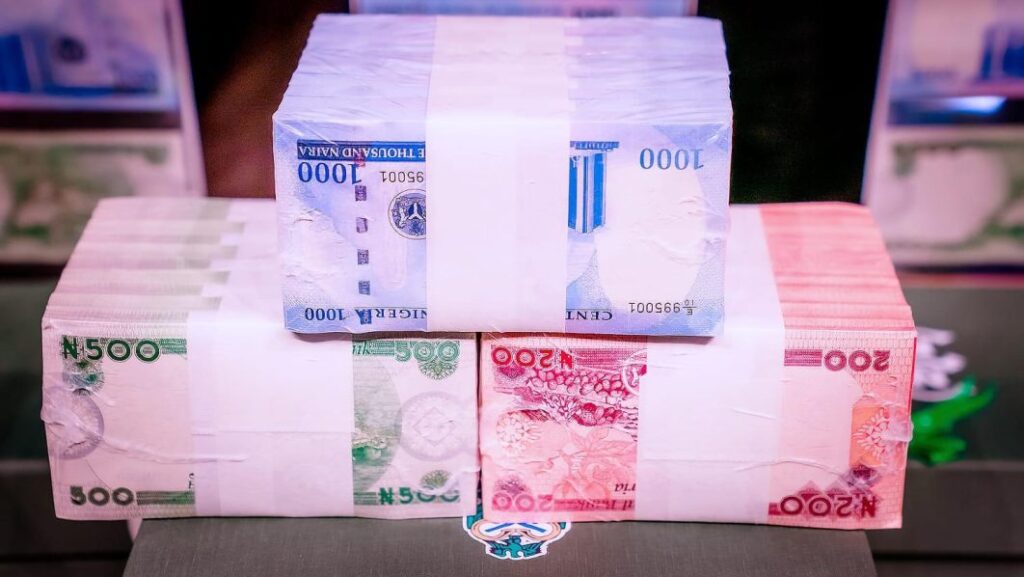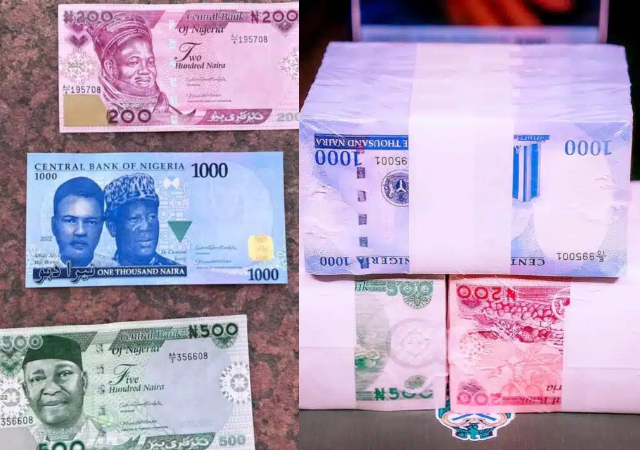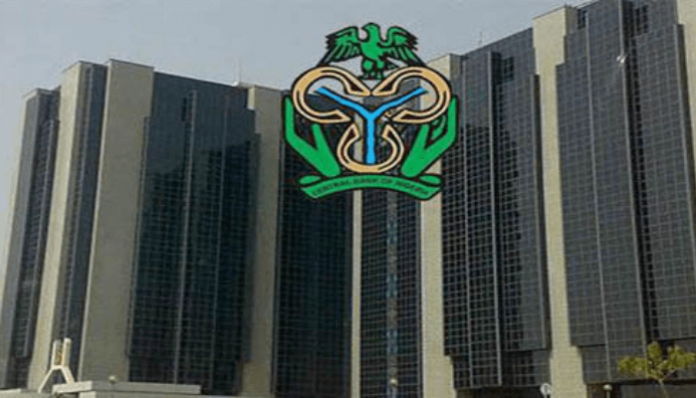The Central Bank of Nigeria, CBN has made a financial New Year resolution on behalf of Nigerians. The apex bank which is in charge of all the monetary policies has decided to slash how much Nigerians spend in a day in the middle of an all-time high inflation rate of 21.47% as at November 2022.
On the 6th of December, Nigerians were hit with a new withdrawal policy by the Central Bank of Nigeria, CBN. This is coming after the apex bank had redesigned the N200, N500, and N1000 notes. The policy which is billed to take effect from 9th January 2023 read thus:
December 6, 2022

- BSD/DlR/PUBILAB/015/069
Letter to All Deposit Money Banks (DMBS) and Other Financial Institutions
(Payment Service Banks (PSBs). Primary Mortgage Banks (PMBs) and Microfinance Banks (MF3s)
NAIRA REDESIGN POLICY – REVISED CASH WITHDRAWAL LIMITS
Further to the launch of the redesigned Naira notes by the President of the Federal Republic of Nigeria, on Wednesday, November 23, 2022 and in line with the Cashless policy of the CBN, all deposit money banks (DMBs) and other financial institutions (OFIs) are hereby directed to note and comply with the following:
- The maximum cash withdrawal over the counter (OTC) by individuals and corporate organizations per week shall henceforth be N100,000 and N500,000 respectively. Withdrawals above these limits shall attract processing fees of 5% and 10%, respectively.
- Third-party cheques above shall not be eligible for payment over the counter, while extant limits of El on clearing cheques still subsist.
- The maximum cash withdrawal per week via Automated Teller Machine (ATM) shall be N100,000 subject to a maximum of N20,000 cash withdrawal per day.
- Only denominations of k200 and below shall be loaded into the ATMs-
- The maximum cash withdrawal via point of sale (POS) terminal shall be N20,000 daily.
- In compelling circumstances, not exceeding once a month, where cash withdrawals above the prescribed limits is required for legitimate purposes, such cash withdrawals shall not exceed
and
for individuals and corporate organisations, respectively, and shall be subject to the referenced processing fees in (I) above, in addition to enhanced due diligence and further information requirements.
Further to (6) above, you are required to obtain the following information at the minimum and upload same on the CBN portal created for the purpose.
- Valid means of identification of the payee (National ID, International Passport, and Driver’s License).
- Bank Verification Number (BVN) of the payee.
- Notarized customer declaration of the purpose for the cash withdrawal.
d. Senior management approval for the withdrawal by the Managing Director of the drawee, where applicable
- Approval in writing by the MD/CEO of the bank authorising the withdrawal.
Please further note the following:
- Monthly returns on cash withdrawal transactions above the specified limits should be rendered to the Banking Supervision Department.
ii. Compliance with extant AMI-ICFT regulations relating to KY C, ongoing customer due diligence and suspicious transaction reporting etc. is required in all circumstances.
iii. Customers should be encouraged to use alternative channels (internet banking, mobile banking apps, USSD, cards/POS, eNaira, etc.) to conduct their banking transactions.
Finally, please note that aiding and abetting the circumvention of this policy will attract severe sanctions.
The above regulatory directives take effect nationwide from January 9, 2023.
Please be guided accordingly.
HARUNA B. MUSTAFA
DIRECTOR OF BANKING SUPERVISION
The apex bank however did not place a limit on online transfers which therefore, allows for online transactions but that is where the concerns lay. The policy did not capture the gap between the rural setting and the high illiterate level in the country.

Simone a twitter user wrote, “I imagine the popular grains plug in my hood who asks any younger person close by to help her dial the number of a contact on her list cuz she can read nor write. She relies on cash transactions at the remote villages she goes to buy grains.” There are several people like this woman here.
There is no bank in my Local Government Area, not a single one. People travel to neigbouring Local Governments to use the bank.
In an area such as that with over 500,000 people yet without a bank, how can we confidently rely on online transfers? Some of these rural dwellers do not own phones yet they make for a large number of contributors in the economy.
A couple of weeks ago I went to a community in Oyo State, the community is about 45 minutes away from the state capital Ibadan, that community gained telecommunications network access on the 3rd December, 2022 for the first time.
There are several communities like Olanla scattered all over the country and most communities like this are major suppliers of agricultural products to the towns, whether you go there to buy or they bring those products, the new policy will most likely affect that transaction. It’s either the community is without network or the seller does not have an account.
Generally, telecommunications network even in major cities is a major challenge to the cashless policy the CBN and the current administration are trying to push. Transactions are delayed or do not go through at all; the idea of a cashless economy is a great one as the world is evolving however, policies such as this are not implemented at a go.
The slash of the weekly withdrawal limit by 80% for individuals is a swift shift for developing countries like Nigeria. Though the policy is not entirely bad, the negatives definitely outweigh the positives in the short or long run. The inflation rate puts a red flag on the policy, some hospitals do not have an online channel for payment, and in case of emergency, one will be stranded as to how to source for funds to settle bills.

Howbeit, the apex bank has given everyone a new resolution for the coming year though the policy has an upward review after much outcry by the public and stakeholders. Part of the review said;
“Following our circular BSD/DIRIPUB/LAB/015/069 dated December 6, 2022, on the above subject and based on feedback received from stakeholders, the CBN, hereby make the following reviews: The maximum weekly limit for cash withdrawal across all channels by individuals and corporate organisations shall be N500,000 and N5,000,000.
“In compelling circumstances where cash withdrawal above the limits in (1) above is required for legitimate purposes, such request shall be subject to a processing fee of three percent and five percent for individuals and corporate organisations respectively.”
We’ll watch how this pans out for the country and the economy in the New Year.















I have saved as a favorite for later!
bitsdujour.com
Oh my goodness! Impressive article dude! Many thanks, However I am experiencing troubles with your RSS. I donit know the reason why I cannot subscribe to it. Is there anyone else having the same RSS issues? Anybody who knows the solution will you kindly respond? Thanks!!
tips-agency.digital.reseau-ges.fr
I really like your writing style, excellent info , thanks for putting up :D.
[url=https://www.brijencapsulants.com/2023/09/29/comment-ouvrir-un-compte-1xbet-pour-commencer-a-parier/]brijencapsulants.com[/url]
Your article helped me a lot, is there any more related content? Thanks!